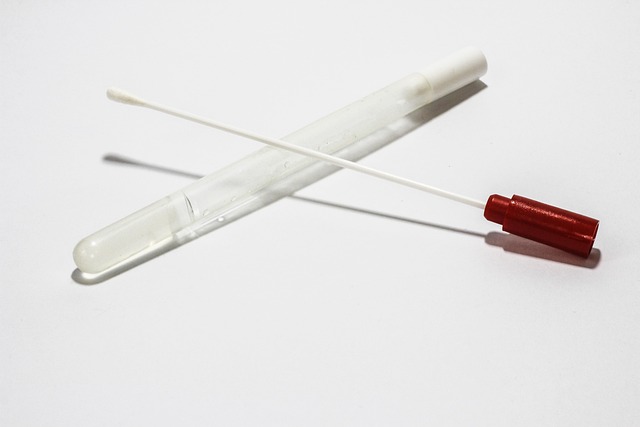Thyroid health, vital for overall well-being, is assessed in the UK using standard kits including Iron Blood Tests (IBTs) which measure ferritin levels crucial for T3 and T4 hormone production. IBTs help detect iron deficiency anemia, a cause of thyroid disorders like hypothyroidism or hyperthyroidism. Understanding ferritin ranges (12-150 µg/L) is key; low levels (<12 µg/L) prompt consultation with a healthcare provider for dietary adjustments or supplements, followed by regular tests to monitor improvement.
“Unraveling thyroid health is essential for overall well-being, and the UK healthcare system utilizes iron blood tests as a critical tool. This comprehensive guide explores the standard thyroid examination kit designed for UK patients, focusing on the role of iron blood tests in diagnosing and managing thyroid conditions.
We’ll break down the key components of this kit, explain how to interpret test results, and outline the subsequent steps for optimal patient care, specifically highlighting the significance of iron blood tests within the UK healthcare framework.”
- Understanding Thyroid Health and the Role of Iron Blood Tests in UK Patient Care
- Components of a Standard Thyroid Examination Kit for UK Patients
- How to Interpret Results and Next Steps After an Iron Blood Test in the UK
Understanding Thyroid Health and the Role of Iron Blood Tests in UK Patient Care
Thyroid health is a critical component of overall well-being, as this gland plays a pivotal role in regulating metabolism and influencing numerous bodily functions. In the UK, patients often turn to standard thyroid examination kits for initial screening and monitoring. Among the various tests available, Iron Blood Tests (IBTs) have emerged as valuable tools for assessing thyroid health, particularly in identifying potential iron deficiency anemia, which can impact thyroid function.
IBTs measure levels of ferritin, a protein that stores iron in the body. Since iron is essential for the production of thyroid hormones, T3 and T4, any deficiency can lead to hypothyroidism or hyperthyroidism. Therefore, IBTs are integral to early detection and management of thyroid-related issues in UK patients. These tests provide valuable insights, enabling healthcare professionals to make informed decisions and tailor treatment plans accordingly.
Components of a Standard Thyroid Examination Kit for UK Patients
A standard thyroid examination kit for UK patients typically includes a range of essential components designed to provide a comprehensive assessment of thyroid health. Among these, key tests such as the Thyroid Stimulating Hormone (TSH) test and T3/T4 hormone tests are crucial. These blood tests help healthcare professionals diagnose conditions like hypothyroidism, hyperthyroidism, and other thyroid disorders.
Additionally, many kits offer an Iron Blood Test UK, which is vital for evaluating iron levels in the body, as iron deficiency can impact thyroid function. This test measures ferritin, transferrin saturation, and unsaturated iron-binding capacity to assess iron status. By combining these tests, healthcare providers gain valuable insights into a patient’s overall thyroid health and nutritional well-being, enabling them to make informed decisions about treatment and management strategies.
How to Interpret Results and Next Steps After an Iron Blood Test in the UK
After an Iron Blood Test (IBT) in the UK, understanding your results is key to knowing your next steps. The test measures ferritin levels, which indicate the amount of iron stored in your body. Normal ferritin levels typically range from 12 to 150 micrograms per litre (µg/L). If your result falls within this range, it suggests that your iron levels are adequate and you don’t require immediate intervention. However, if your ferritin levels are below 12 µg/L, it indicates possible iron deficiency anaemia, and further investigation is needed.
If your IBT results show low ferritin levels, the next steps involve consulting your healthcare provider. They may recommend dietary changes to include more iron-rich foods like red meat, dark leafy greens, and fortified cereals. In some cases, they might prescribe iron supplements to help raise your ferritin levels. Regular follow-up tests are also essential to monitor your progress and ensure that your iron levels are improving.
Understanding thyroid health is paramount, especially with the crucial role that iron blood tests play in UK patient care. A standard thyroid examination kit equips healthcare professionals with essential tools to diagnose and manage conditions effectively. By interpreting results from iron blood tests, medical teams can determine the next steps, be it further investigation or implementing appropriate treatments, thereby enhancing overall patient outcomes in the UK.
